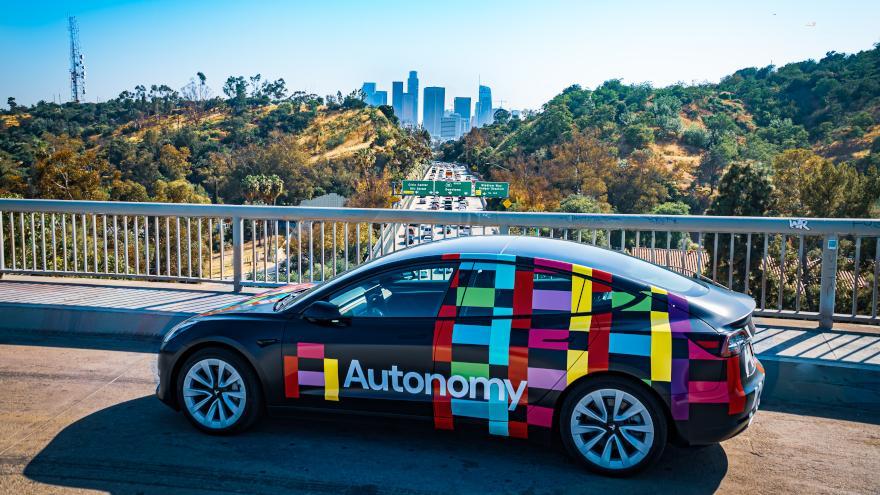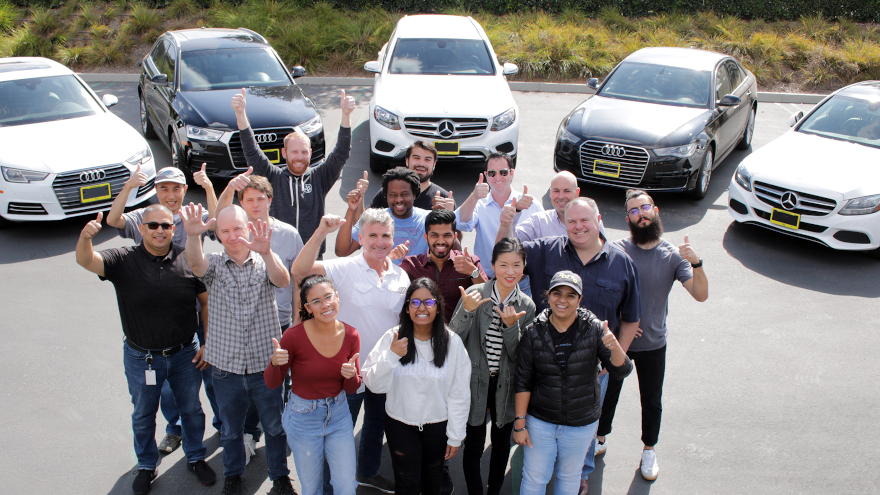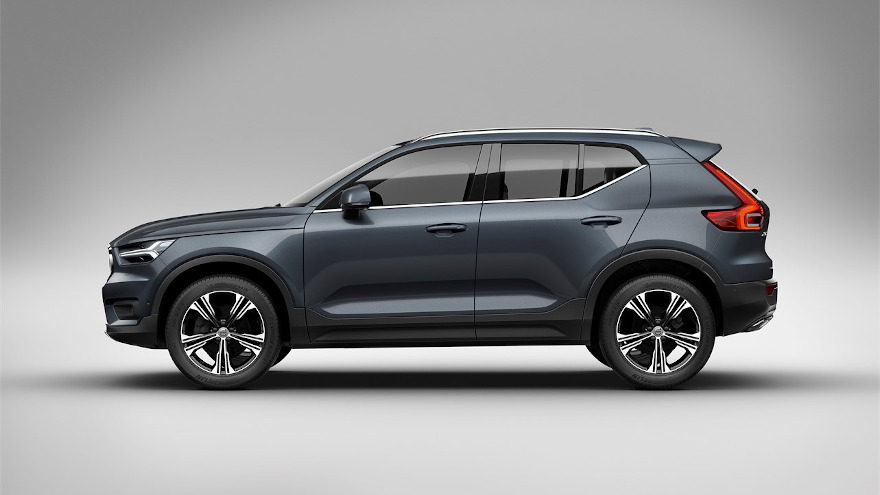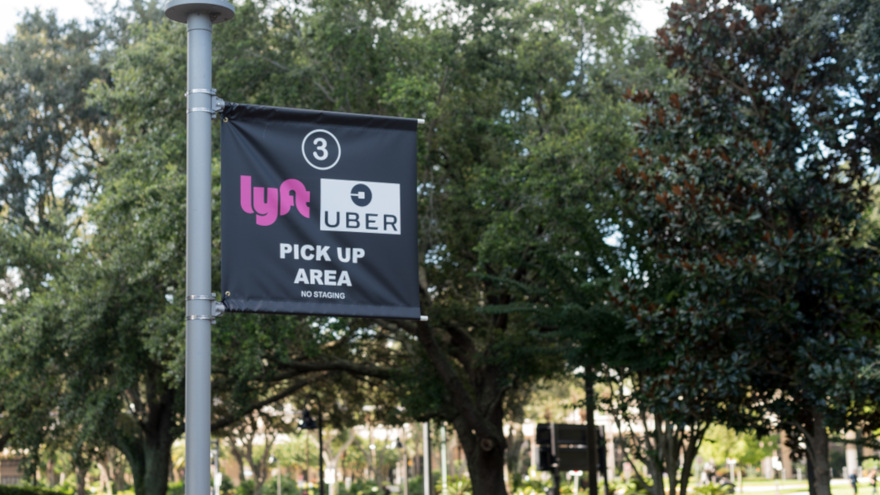Nova Credit and Autonomy now are collaborating to help consumers with a ‘thin file’ or no credit history become electric vehicle subscribers.
The consumer-permissioned credit bureau announced a partnership with the electric vehicle subscription company on Wednesday that will merge Autonomy’s application process with Nova Credit’s cash flow underwriting solution, Cash Atlas.
The companies said the collaboration will allow Autonomy to qualify a greater number of customers with ‘thin file’ or no credit history for a vehicle subscription.
Executives added this streamlined, data-driven process will help Autonomy sustain rapid yet qualified customer growth as it expands into additional geographies and other in-demand electric vehicles.
“Being able to automate the underwriting decision for customers that don’t have traditional credit histories, yet represent a great customer fit for our product, is the goal of this partnership,” said Autonomy founder and CEO Scott Painter, who will make multiple appearances during Used Car Week, which starts on Nov. 14 in San Diego.
“Implementing Nova Credit’s Cash Atlas product will allow us to look beyond the traditional definitions of creditworthiness and help get more customers access to electric vehicles while ensuring that the performance of our subscription fleet remains radically better than traditional auto finance. Empowering customers through financial inclusivity is at the core of our mission and aligns with Nova Credit’s own mission,” Painter continued in a news release.
While traditional credit bureau reports have been the anchor data source for credit risk assessment in the industry for years, Nova Credit said they leave gaps in evaluating a customer’s complete financial background and creditworthiness, and limit opportunities for businesses to offer services to large portions of the population.
Nova Credit’s Cash Atlas is designed to bridge this gap by transforming consumer-permissioned bank transaction data into a Fair Credit Reporting Act (FCRA) consumer report, informing businesses’ lending decisions by painting a more holistic view of a customer’s financial health.
Autonomy said it will embed Cash Atlas directly into its application process, giving prospective customers the immediate opportunity to provide additional bank statement data to present a more comprehensive view of their financials and thus increase their chances of approval.
With this capability, Autonomy will be able to automate credit risk decisioning based on a customer’s bank transaction data rather than simply relying on traditional credit reports, which glean insights from credit behavior that can be limited and months behind. The partnership allows Autonomy to increase efficiency and reach more customers, without sacrificing payment risk.
“To date, traditional credit data-based underwriting practices have unintentionally excluded a broad swath of consumers from smart financial options like vehicle subscription services — an important solution for those who want to test the EV waters but might not be ready to commit to purchasing a car,” said Misha Esipov, co-founder and CEO of Nova Credit.
“This partnership allows Autonomy to better serve the mainstream and credit-excluded consumers who may not be aware that they are even eligible for these subscriptions. Cash Atlas allows users to paint a more complete picture of their financial identity and in doing so allows lenders to make a more fair and informed risk decision,” Esipov went on to say.
Here’s another development involving EVs and shorter consumer obligations.
Ferry, an electric vehicle subscription platform that allows consumers to obtain short-term leases on new EVs, announced this week it has partnered with Inspiration Fleet to make Tesla Model 3s and Model Ys available to customers in Austin, Texas.
Ferry said it has also reached more than 5,000 app downloads, marking what it called a key milestone in the company’s mission to make sustainable mobility a reality for all Americans.
The companies highlighted Inspiration Fleet’s flexible, tailored financing enables Ferry to offer Tesla and other electric vehicles to its customers via an attractive subscription package, and allows Ferry to quickly enter new markets with a scalable operations architecture.
The companies also mentioned this partnership advances the progress made in February when Ferry announced a $4 million seed round led by prominent automotive industry investors and in May when Ferry announced its first deliveries of the Vespa Elettrica in Austin, as well as its expansion into the San Francisco and Los Angeles markets.
Ferry said it has already had strong demand for its simple, flexible, all-in-app EV leasing experience, with more than 2,500 app users in Austin alone and thousands of “wishlist” selections for EVs that will soon be available for delivery, since going live in November of 2021.
“At Ferry, we believe in a future where electromobility is for everyone, and we’re proud to work with a visionary company like Inspiration to ensure that mission becomes a reality,” Ferry founder and chief executive officer Kristian Russell said in a news release.
“By partnering with Inspiration, Ferry will help accelerate the adoption of sustainable driving by pushing the American auto sales industry into a more digital, and more flexible future, at more and more attractive customer price points,” Russell continued.
Unlike other car-subscription offerings, Ferry said it charges no down payment or initiation fee and offers a single, transparent monthly payment to e-curious customers who may not want to commit to a 36-month lease or purchase term.
Through Ferry’s app, users can select a short-term (six-, 12- or 24-month) lease for delivery to their door, purchase insurance, and access a map to find the nearest charging stations.
Ferry added that 1,000 miles per month (with the ability to upgrade), maintenance and taxes are all included, and a Ferry ambassador delivers the car for a flat fee of $99.
Ferry is currently delivering the following EV models to Austin customers:
• Vespa Elettrica from $179/month
• Tesla Model 3 subscription from $799/month
• Tesla Model Y subscription from $999/month
Josh Green is founder and CEO of Inspiration Mobility, Inspiration Fleet’s parent company.
“Ferry and Inspiration have a shared goal to accelerate electric vehicle adoption,” Green said. “We believe that Ferry’s affordable and flexible subscription options for drivers interested in ‘going electric’ can increase consumer trial and experience, which in turn drives enthusiasm and broader adoption.
“We are proud to support them in their efforts to democratize access to EVs and electric mobility in the United States,” Green went on to say.
AutoGravity is leveraging its relationship with a trio of German automakers to deliver a consumer option for individuals near Los Angeles who do not want a lease or retail installment sales contract.
On Tuesday, AutoGravity launched a flexible car usage service called Turn.
The company explained Turn is addressing the customer requirement for flexibility with no commitment by offering feature-rich, off-lease, used vehicles through an established partnership with Mercedes-Benz, Audi and Volkswagen.
“Turn understands that its customers do not want to lock themselves into mini-mortgages when they are unsure about the circumstances concerning their ever-evolving daily lives,” the company said.
The Turn offering includes all the essentials rolled into a monthly price including maintenance, comprehensive and collision insurance and roadside assistance. Equally important, a passionate team is ready to engage with customers to ensure vehicle usage becomes a burden-free pleasure. Whether the choice is a gasoline-powered or electric vehicle from Smart Car, Mercedes-Benz, Audi or Volkswagen, Turn’s service level is consistently efficient, passionate and friendly.
The experience is designed to be simple. Once a vehicle is selected, the order is executed via mobile application or web interface, and an arrangement is made to have the vehicle delivered to the customer’s door.
Equally simple is the return process, all driven by one simple interaction, according to an AutoGravity news release.
“Our extensive research shows that the time for flexible car usage is now,” AutoGravity chief executive officer Alex Mallmann said. “This new option is becoming a popular way for consumers to find the right cars, at the right price and time to meet their specific circumstances.
“We pioneered the digital lending platform space with the creation of the AutoGravity platform. And that experience has provided valuable customer insights for us to naturally progress to the flexible usage and subscription space,” Mallmann continued.
“We are very excited about Turn’s potential and expanding the service into new markets over time,” he went on to say.
Turn is available now for customers in the greater Los Angeles region. For more information, visit www.turncar.com.
The California New Car Dealers Association (CNCDA) isn’t pleased with Volvo’s subscription service, and the organization is getting state authorities involved.
According to a news release, the organization representing nearly 1,200 franchised dealerships statewide successfully convinced California’s New Motor Vehicle Board (NMVB) last week to unanimously direct the Department of Motor Vehicles (DMV) to conduct an investigation into Volvo in connection with the OEM’s subscription service — Care by Volvo (CbV).
At a public hearing before the NMVB to consider the petition filed earlier this year by CNCDA, the association presented arguments against Volvo, claiming that as a licensee of the DMV, Volvo has been in violation of the California Vehicle Code (VC) by introducing CbV.
CNCDA asserted that CbV is aimed at getting consumers to lease their vehicles directly from Volvo, instead of buying or leasing them directly from a Volvo dealership. Described by Volvo as a “subscription” program, CNCDA said CbV offers customers a two-year lease with a fixed, standardized, pre-determined monthly charge including cost of the vehicle, insurance, maintenance, road hazard protection and normal wear and tear.
CbV is currently available for two Volvo models — the XC40 and the S60. Both models are also sold and leased by Volvo dealers directly to consumers outside of the CbV program.
CNCDA also alleged that the CbV program is illegal and violates several provisions in the California VC aimed at protecting franchisees and consumers, each of which constitutes a separate ground for disciplinary action against Volvo’s DMV license under the law.
Officials said the NMVB unanimously agreed that CNCDA’s claims were warranted and directed the DMV to investigate the following specific allegations:
1. Care by Volvo creates competition between manufacturer and dealers
— CbV diverts customers away from dealers to Volvo with the ultimate goal of bypassing the franchise model entirely.
— Such business practices are prohibited under California law and undermine the fundamental purpose of California’s robust new motor vehicle regulatory system.
2. Volvo’s failure to give written notice to franchisees and the board about CbV
— The VC prohibits franchisors such as Volvo from making franchise changes that would “substantially affect the franchisee’s sales or service obligations or investment” absent 60 days’ written notice to the affected dealers and to the NMVB.
— CbV is a franchise modification as it fundamentally alters the way dealers sell vehicles and requires a notice to the franchisee and to the NMVB which Volvo did not provide.
3. The CbV program preferentially allocates vehicles and refers sales to dealerships controlled in part by Volvo
— California auto manufacturers are prohibited from giving preferential treatment to dealerships controlled by them in whole or in part.
— Volvo assigns a share of certain highly desirable, limited supply vehicles to CbV dealers to the exclusion of non-CbV dealers who are not controlled by Volvo.
4. The Care by Volvo Program Undermines the Purpose of Prohibiting Payment Packing
— CbV’s flat monthly lease amount conceals the actual cost of the CbV vehicle and the bundled services and fails to disclose that the costs will vary between CbV customers.
— California law mandates that dealers disclose, prior to contract drafting, all charges for goods and services to be added to a contract for the sale of a vehicle. Volvo seeks to escape this restriction by requiring dealers to perform its DMV paperwork.
“We are extremely pleased with the outcome of the hearing and are encouraged that the New Motor Vehicle Board agreed that all four of our claims against Volvo deserve DMV investigation. This is just the first step in ensuring that manufacturers, specifically Volvo, stop going around their franchisee business partners in an attempt to retail vehicles directly. Franchise laws exist to protect dealers from this type of behavior,” California New Car Dealers Association president Brian Maas said in the news release.
“Our dealer members support innovation, including subscription-based models, but we are against violating the law,” Maas continued. “There is a right way and a wrong way to do business in California, Care by Volvo is the wrong way.
“We look forward to the results of DMV’s thorough investigation into our claims and are hopeful that this illegal behavior will be stopped and punished,” he went on to say.
The NMVB also requested the DMV provide the board with a written report on the results of its investigation within 180 days.
For more information and details of the petition, go to this website.
As the company announced its new Device-as-a-Service (DaaS) subscription business model, CalAmp chief executive officer Michael Burdiek explained the three main elements within the DaaS space that make it attractive and potentially profitable.
In additional comments sent to Auto Fin Journal augmenting this week’s news release, Burdiek pointed out the revenue opportunities stem from a simplified subscription package which includes the device and a host of services, full lifecycle device management and efficient capital management.
“The DaaS model provides a cost-effective and capital-efficient way for businesses to bring telematics innovations to market,” Burdiek said.
“Subscription-based models allow companies to better manage expenses and optimize operations by providing the option to adopt a range of microservices based on changing business needs,” he continued.
“This allows enterprises to focus on core business while leveraging CalAmp’s industry-recognized IoT and machine-to-machine communications expertise to streamline data insights and deliver best-in-class telematics services,” he went on to say.
At CalAmp, the company highlighted its DaaS business model can reduce the complexity of telematics deployments by offering a subscription-based service, including a telematics device bundled with access to a broad portfolio of connected car micro-services, such as CrashBoxx crash response and driver behavior services.
The subscription model also can enable business customers to leverage more of CalAmp’s research and development investments and full portfolio of telematics services to lower their business costs and drive new revenue streams from subscription services.
The global DaaS market is expected to grow by approximately $8 billion by 2023, according to Market Research Future. CalAmp contends the growing momentum is a result of increased demand for subscription-based services that provide flexible business terms while enabling enterprise customers to bring innovative telematics solutions to market.
Burdiek added that the complexities of delivering an end-to-end telematics solution is often underestimated, leading to operational and customer service issues. A subscription service model can allow enterprises to focus on their core business while leveraging CalAmp’s industry-recognized machine-to-machine communications expertise to streamline the flow of data insights and deliver best-in-class telematics services.
“The Device-as-a-Service model provides a cost-effective and capital efficient path for our business customers to more easily bring our telematics innovations to market,” Burdiek said in a news release
“Subscription-based models allow companies to better manage expenses and optimize operations by providing the option to adopt a range of micro-services based on business needs,” he reiterated.
“We anticipate the increased level of flexibility and seamless digitalization will help us build stronger partnerships and result in greater customer loyalty while driving recurring revenue.”
The new subscription model also can allow enterprises to increase telematics security, ensure vehicle device compatibility and capture valuable data insights that improve customer service, while expanding client access to CalAmp’s CrashBoxx instant crash alert services, driver safety and other connected car micro-services.
Burdiek closed his comments to Auto Fin Journal by emphasizing how CalAmp’s past experience and technology in the auto space help the company to roll out this newest product?
“CalAmp heritage in the telematics space has enabled us to have a deep understanding of our customers pain points of deploying and maintaining telematics solutions,” he said. “With DaaS, business customers will be able to leverage more of CalAmp’s research and development investments and full portfolio of telematics services to lower their business costs and drive new revenue streams from subscription services.”
LMP Automotive Holdings (LMP) and DriveItAway are working together to get vehicles to drivers who are working for Uber and Lyft.
LMP has made its vehicles available on the DriveItAway platform to Uber and Lyft drivers in Florida. DriveItAway is a unique “one-stop” shared mobility application for dealers. DriveItAway App users can now subscribe to or rent new and pre-owned vehicles from LMP directly through the app. The drivers can now pick up and swap vehicles they subscribe or rent from LMP at any of its Florida locations.
“The Mobility-as-a-Service market is rapidly emerging and estimated to grow to approximately $358 billion by 2025 as compared to $38.6 billion in 2017, according to Research and Markets,” LMP Automotive Holdings chief executive officer Sam Tawfik said.
“We are pleased to contribute to the emergence of this industry in the automotive sector by offering DriveItAway users variety from our selection of new rideshare vehicles and convenience in the southern Florida region directly through the application,” Tawfik continued.
“We look forward to working with the DriveItAway team, continuing to build our brand in Florida as well as other regions and establishing long-term customer relationships,” Tawfik went on to say.








